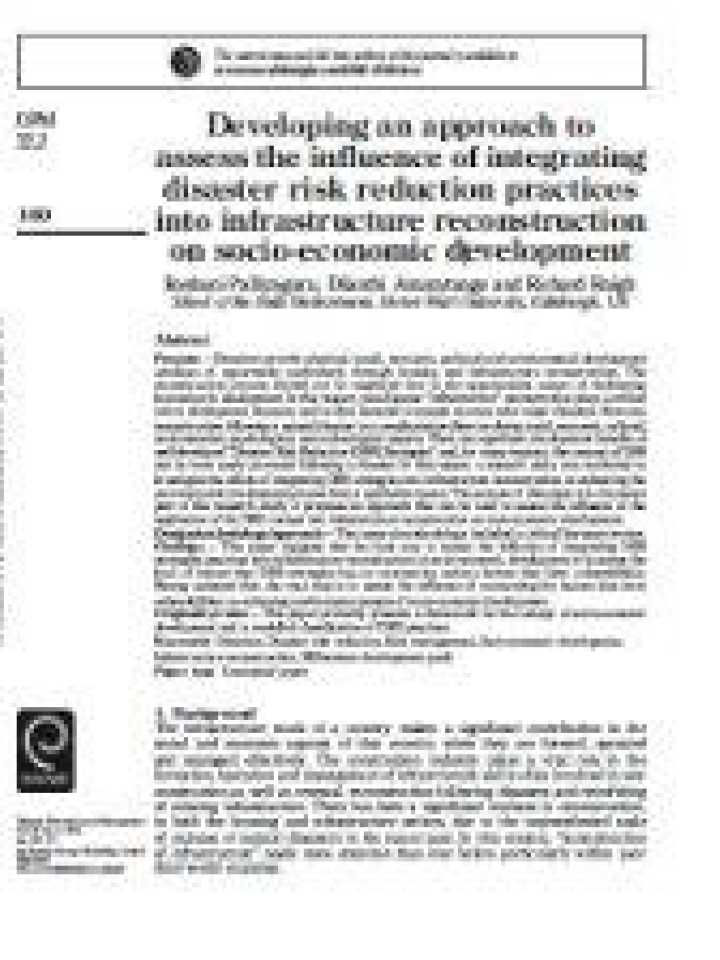Developing an approach to assess the influence of integrating disaster risk reduction practices into infrastructure reconstruction on socio-economic development
This paper documents a research study that was conducted to investigate the effects of integrating Disaster Risk Reduction (DRR) strategies into infrastructure reconstruction on enhancing the socio-economic development process from a qualitative stance. The paper proposes an approach that can be used to assess the influence of the application of the DRR concept into infrastructure reconstruction on socioeconomic development.
Disasters provide physical, social, economic, political and environmental development windows of opportunity particularly through housing and infrastructure reconstruction. The reconstruction process should not be neglected due to the opportunistic nature of facilitating innovation in development. In this respect, postdisaster ‘infrastructure’ reconstruction plays a critical role in development discourse and is often essential to sustain recovery after major disasters. However, reconstruction following a natural disaster is a complicated problem involving social, economic, cultural, environmental, psychological, and technological aspects. There are significant development benefits of well-developed ‘Disaster Risk Reduction Strategies’ and, for many reasons, the concept of DRR can be more easily promoted following a disaster.
Explore further
